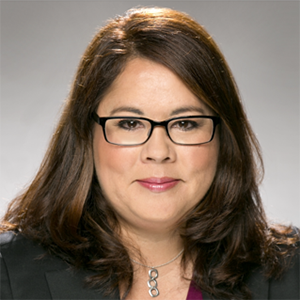 Lynn Whitcher
Lynn Whitcher
We have all been there – sitting at a business conference (virtually or IRL) facing a(nother) line-up of all-male panelists (a.k.a. the “manel”).[1] Despite years of increased conversations around diversity in the workplace, the percentage of women speakers has not significantly shifted.[2]
We are long past the point where industry leaders need to be convinced of the value of diversity. Diversity drives business performance.[3] Full stop. This is because different voices and different ways of thinking are critical to innovation and effective problem-solving.
If diversity is so critical to business success, why the continued preponderance of the all-male industry conference panel?
Certainly, there is something to be said for conference planners taking the easy path and looking solely within their current network or past speakers lists to find panelists.
However, there are industry groups, state wireless associations, regional conferences, and trade publications looking to highlight new and different speakers. From my perspective chairing and volunteering on various educational committees, we need to do a better job of connecting conference planners with fresh ideas and new perspectives.
Here are my tips for conference planners, employers, and prospective speakers to help capitalize on these invaluable opportunities and support diverse thought leadership in our industry:
1.) Conference Planners: Ensure diversity of thought on your panels by having a diverse conference planning team. Reach out to diverse organizations and educational institutions to help identify experts outside your immediate network. If your educational committee has not had any recent additions, find new volunteers to help inject a new perspective. (PS: it is really hard to find good volunteers for these committees).
2.) Employers: Encourage employees to volunteer for conference committees and help support their travel and related expenses for the show. This is really a win-win for both the employee and the employer. Not only do volunteers often get free or reduced tickets to the show, but they often get early management experience planning the conference while simultaneously connecting with thought leaders and industry experts who are happy to share their insights with the next generation of leaders. This helps prepare the employee to take on increased responsibilities at the office, while also highlighting the company as a great place to work.
3.) Thought Leaders: If you are approached to speak on a panel, champion diverse talent. I love hearing about thought leaders who require the conferences they speak at prominently feature women and other diverse experts.[4] This level of support from the establishment is critical to bring change to the status quo.
4.) Future Speakers: Leverage your network. You probably did not get where you are today by waiting for people to hand you your next opportunity. It is no different with speaking engagements. Look within your network for opportunities to share your knowledge. WWLF, for example, has an open call for speakers on its website (visit: https://www.wwlf.org/). Fill out the form, talk to a Board member so we have an understanding of your background and experience, and see where things go!
For more strategies, check out this LinkedIn post.
About the author: Lynn Whitcher is General Counsel for MD7. She serves as Co-Director of Education for Women’s Wireless Leadership Forum; Education Committee Chair for California Wireless; and on the speaker committee for Wireless West.

[1] I take neither credit nor blame for this term. I did not coin this phrase and a quick internet search did not reveal its origin.
[2] Kathy Gurtchiek, Female Speakers Underrepresented at Professional Gatherings (January 14, 2020) https://www.shrm.org/resourcesandtools/hr-topics/behavioral-competencies/global-and-cultural-effectiveness/pages/female-speakers-underrepresented-at-professional-gatherings.aspx. “The representation of women as speakers and panelists at conferences and summits is low across most industries and types of gatherings, according to an analysis of more than 60,000 event speakers.”
[3] McKinsey & Company, Delivering through Diversity (2018) https://www.mckinsey.com/business-functions/people-and-organizational-performance/our-insights/delivering-through-diversity
[4] For example, Francis Collins, director of the National Institutes of Health, stated: “Too often, women and members of other groups underrepresented in science are conspicuously missing in the marquee speaking slots at scientific meetings and other high-level conferences. Starting now, when I consider speaking invitations, I will expect a level playing field, where scientists of all backgrounds are evaluated fairly for speaking opportunities. If that attention to inclusiveness is not evident in the agenda, I will decline to take part. I challenge other scientific leaders across the biomedical enterprise to do the same.”